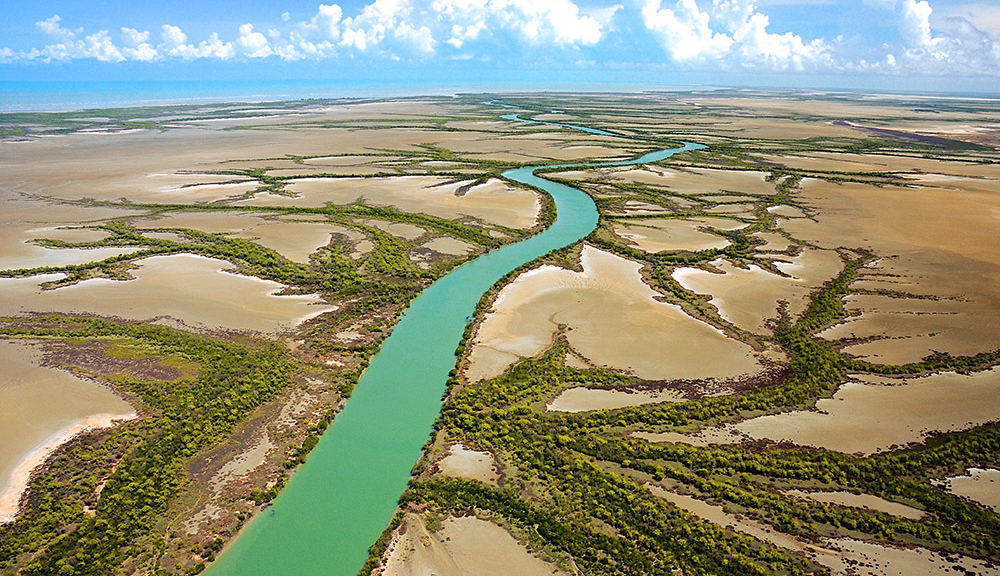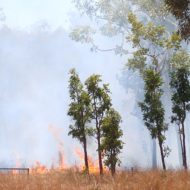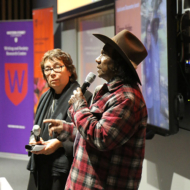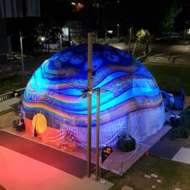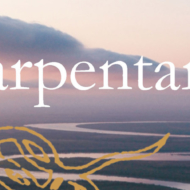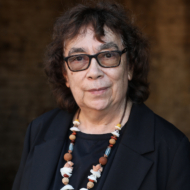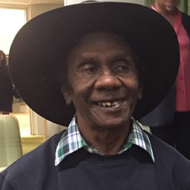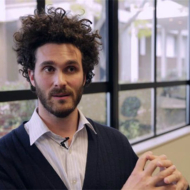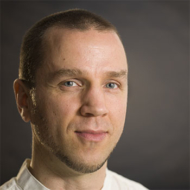This theme, which is being led by Alexis Wright, examines oral storytelling from local and international perspectives. It investigates what it means to have an oral storytelling culture and tradition in today’s world, and how to utilize and build oral storytelling skills within a dominating culture where literacy is usually equated with reading and writing. Its central focus and concern is with the challenges facing Aboriginal storytelling and the way that Aboriginal stories are told. This involves considering the importance of memory, the archive, the relation between the oral story and the written story. It asks about the place of oral storytelling in broader literary culture, as well as its value to storytellers and listeners in both the Aboriginal world and beyond.
Despite some important institutions and facilities (which tend, nevertheless to be poorly resourced), many Indigenous community stories are in danger of fading as storytellers die. It is quite possible that there will be greater losses of cultural property and knowledge occurring at a faster rate through the destruction of environments and biodiversity catastrophic climate change events, and through the growing impact of global warming on traditional homelands. As there has been no concentrated effort to archive and renew Aboriginal knowledge of storytelling skills for preserving memory, or in the development of new stories, the Aboriginal world is in danger of floundering, which further jeopardises Aboriginal futures. At the centre of this project are collaborations with two talented storytellers from the Gulf of Carpentaria: Clarence Walden and Murrandoo Yanner. For both, Wright travelled to the Gulf with a recording crew to work directly with the storytellers.
The focus of their work is on how to sustain and renew storytelling traditions and in the transfer of life-long learning of cultural knowledge that helped Aboriginal people to survive as the oldest living culture in the world, and to have good understanding of traditional ways of listening. With a plethora of modern stories hitting any part of the Aboriginal world yesterday, today or tomorrow, they are pondering the questions: who do you listen to? Do you just wait until the current teller dies off while you continue to decide what to do? How do you identify and enforce a mutually acceptable story, if you decide that someone is not telling the story that you want to hear?
The collaboration with Walden led to two feature documentaries, one for ABC Radio National (Nothing but the Truth), the other for the screen (Straight from the Heart). In the collaboration with Yanner, Wright is creating a visual storybook in chapters, which will be archived with the Carpentaria Land Council.
Alongside these major projects, Wright is considering strategies that have been adopted in oral cultures elsewhere in the world. A particular interest, is in thinking about oral storytelling in the Caribbean context, focussing on the work of the Martinican writer Patrick Chamoiseau. This fed into and her contribution to the Caribbean Meridians conference. . (Chamoiseau himself was to have attended to collaborate with Wright, but could not attend due to health reasons.) Wright is also reflecting on Aboriginal storytelling in the broader context of ‘world literature’ through a series of lectures and talks given over the course of project. These are listed with links to the published papers here.
Photo top: Dean Jewell

